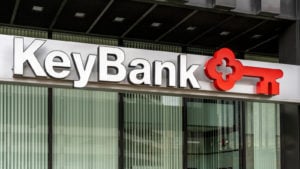
I’m no more certain than the next speculator regarding the fate of bank stocks in 2023. We’re all aware that this year has been a tough one for the sector. The bank runs a few months back were a scary sight to behold. Thankfully, the banking sector has held up, and things are normal again.
However, August could put renewed pressure on the banking sector. Earnings already caused caution per S&P Global a few weeks ago. Pressures were then considered to be mounting as costs edged higher. That pressure will likely intensify as the effects of the first U.S. credit downgrade in over a decade take root. That’s enough reason to sell weaker bank stocks this month.
CBB Bancorp (CBBI)

CBB Bancorp (OTCMKTS:CBBI) has held steady following the banking crisis when it fell from $12 to $10. It is currently at a similar price. Despite its relative stability, it remains a stock to sell.
There’s simply too much risk involved in investing in CBB Bancorp. For one, CBBI trades over the counter or in the OTC markets, which are less regulated and higher risk than larger counterparts like the New York Stock Exchange and the Nasdaq. That’s not a particularly large issue, but it is worth considering nonetheless.
The issue is more with the composition of CBB Bancorp’s asset base. More than 85% of the bank’s loans are in the commercial real estate sector. That seems like a real risk, given how much speculation there has been about the safety of commercial real estate overall. Commercial real estate loan receivables make up the vast majority of all of the payments expected at the bank. The bank seems overly concentrated, and overconcentration usually creates unnecessary risk.
First Horizon (FHN)

First Horizon (NYSE:FHN) has already taken it on the nose in 2023 multiple times. The banking crisis affected the Memphis-based bank. That sent its value lower, creating trouble for the bank in general.
Then TD’s (NYSE:TD) prior offer to acquire First Horizon was eighty-sixed after regulators blocked the deal from going through. The issue was not the fault of First Horizon. Instead, anti-money-laundering concerns regarding TD’s handling of multiple transactions caused the deal to fall apart.
Although the fault lies squarely on the shoulders of TD, it was First Horizon who suffered. In an ironic twist of fate, FHN shares dropped significantly while TD shares actually increased. The result might seem perverse, but TD is a large bank, while First Horizon is a regional bank. Regional banks have been marked out recently, and First Horizon is a prime example of that phenomenon. However, First Horizon isn’t without its share of issues. The company has struggled to create any value for shareholders, which has nothing to do with TD. Instead, it’s a reason to steer clear of FHN alone.
KeyCorp (KEY)

KeyCorp (NYSE:KEY) should only appeal to investors seeking a high-risk income play in bank stocks. KeyCorp shares include a dividend yielding more than 6.8%. While that is attractive, the overall picture is one of risk. In fact, a 6.8% dividend is plainly indicative of risk overall.
The fundamental issues facing KeyCorp aren’t insignificant. The bank’s earnings statement is littered with metric after metric suggesting a downturn is in effect. KeyCorp’s revenues are the most obvious issue when you scan the company’s Q2 earnings release. Total revenues fell by 11%, with declines pretty evenly spread between interest income and noninterest income by percentage. Income from continuing operations fell by 50% during the quarter.
KeyCorp remains a well-known name in banking. That’s a positive overall. However, investors are unlikely to move into regional banks period at this time, especially as Fitch credit downgrades add pressure to the sector. I’d bet that the largest banks will get stronger as pressure increases on lower-tier banks moving forward. That’s a reason to avoid KeyCorp in addition to its Q2 results.
On the date of publication, Alex Sirois did not have (either directly or indirectly) any positions in the securities mentioned in this article. The opinions expressed in this article are those of the writer, subject to the InvestorPlace.com Publishing Guidelines.





